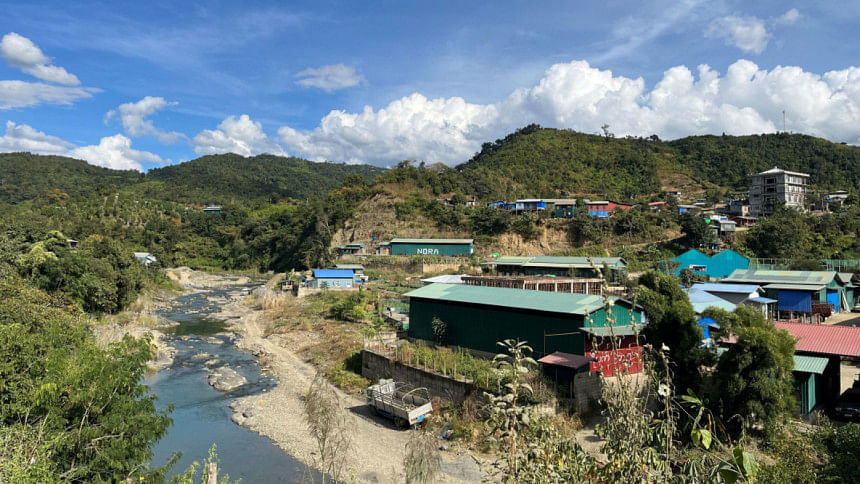Analysis: Time to stabilise Rakhine for good

As an ominous situation looms in Myanmar across the border, Bangladesh is on high alert to prevent the spillover effect of the ongoing violence and civil war in Rakhine.
Bangladesh's prime concern at the moment should be to find strategic and diplomatic pathways to stabilise Rakhine before considering any meaningful repatriation effort. So far, the Tatmadaw (Myanmar military) hasn't shown any concrete signs of resolving the crisis. It hasn't shown any genuine commitment to repatriate the Rohingyas living in Bangladesh.
The Arakan Army will remain the core feature of the Rakhine administration and society in the coming months as it controls most of the state. It is also difficult to bypass the Arakan Army to materialise the government's Rohingya repatriation goals.
Hence, it is imperative to consider the non-state actors as essential components to stabilise Rakhine and to deter Tatmadaw's act of provocation.
The National Unity Government (NUG) is another critical factor that can potentially serve as a practical conduit in stabilising Rakhine and beyond.
The ongoing crisis also denotes the weakening of Tatmadaw and its loss of territorial control in Rakhine. However, it will still have considerable influence over the Bamar (Myanmar's largest ethnic group) heartland and negotiate with several ethnic armed organisations.
The Tatmadaw has repeatedly dishonoured the tripartite repatriation talks despite Beijing's support and Bangladesh's commitment to the process.
Dhaka and Beijing should now begin talks on Rakhine, as this region is of mutual interest to both countries. However, Dhaka should reach out to Bangkok, Tokyo, Washington (given the Burma Act), and European power centres to stabilise Rakhine for good.
It would be a strategic mistake to delay a push for this concerted effort involving all the regional and world powers focusing on a single global power centre and relying on conventional diplomacy. A political strategy would, hence, require a larger goal beyond the singular task of repatriation.
The armed forces, intelligence community, the Border Guard Bangladesh, and law enforcement agencies should coordinate with the ministries of foreign and home affairs to set out a coordinated practical approach to tackle the crisis. That means, with national interest and security first as the core principle, defence deterrence and diplomacy should be explored involving the world powers.
The UN would be another key actor in leveraging the voices of various stakeholders to garner effective multilateral responses toward Myanmar.
I must mention that this crisis will destabilise the region unless the global powers and other stakeholders deal with it as soon as possible.
Therefore, it is imperative for the government to devise its political and strategic responses based on its national priorities instead of calculating too much on geopolitical pitfalls.
No doubt, Tatmadaw's survival strategy will be to cause instability in its bordering countries by making its conduits more unpredictable. At the end of the day, major powers will also be calculating their national interests. However, Bangladesh must act as a confident actor that has the potential to lead the region as a peaceful regional power. No other country in the region has learned from the bitter experience of August 2017's Rohingya influx than Bangladesh. Let's not forget history.
(Shahab Enam Khan, Professor, Department of International Relations, Jahangirnagar University, Bangladesh)

 For all latest news, follow The Daily Star's Google News channel.
For all latest news, follow The Daily Star's Google News channel. 



Comments